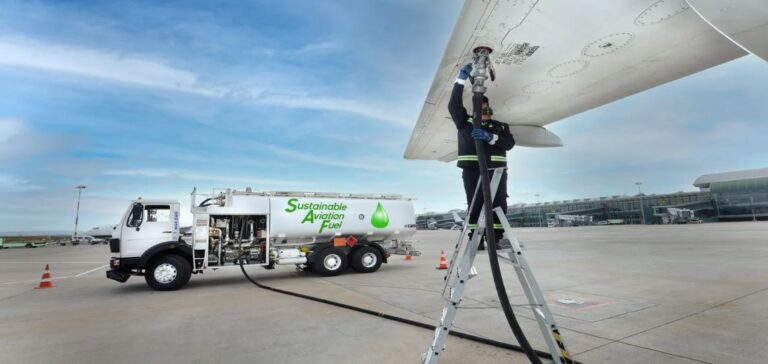The energy and aviation industries are searching for pragmatic solutions to address rising energy costs and supply chain security challenges. In this context, Lydian has demonstrated a major technological advancement by producing sustainable aviation fuel (SAF) from captured CO2. This process is based on a *power-to-liquids* (PtL) technology that combines carbon dioxide, water, and renewable electricity to create a product compatible with existing fossil fuel standards.
This demonstration, conducted at a pilot facility in North Carolina, produces up to 25 gallons of fuel per day. Although modest in scale, this pilot project highlights the viability of a solution that could transform energy supply chains in a sector heavily dependent on fossil fuels. Unlike biofuels, PtL processes do not require significant agricultural resources, which could be a game-changer in the context of national and industrial energy strategies.
A strategic opportunity for the military
Lydian’s technological innovation has also caught the attention of the U.S. Department of Defense. Through the DARPA (Defense Advanced Research Projects Agency) ExCURSion program, the company secured funding to develop a mobile and autonomous fuel production system. This prototype could address critical energy needs in remote or unstable regions.
According to data from the 2023 Annual Energy Performance Report by the Department of Defense, more than 70 million barrels of fuel are consumed annually to support global military operations. The ability to produce sustainable fuel locally would not only lower operational costs but also enhance energy resilience for military forces in complex geopolitical environments.
Challenges and prospects for civilian markets
On the commercial front, Lydian plans to deploy an industrial demonstration plant by 2027, aiming for large-scale production of 20 million gallons annually by 2030. This growth strategy is supported by a high-caliber scientific team, including researchers from prestigious institutions like NASA and MIT.
However, transitioning to large-scale commercial production is not without challenges. The high cost of alternative fuels compared to subsidized fossil fuels remains a barrier. Nevertheless, increased public-private partnerships and stronger political will could accelerate the adoption of these technologies in global energy strategies.
For the aviation industry, the modularity and energy efficiency offered by Lydian’s PtL processes represent an opportunity to diversify supply chains and address growing economic and geopolitical pressures. These solutions pave the way for localized production, mitigating vulnerabilities associated with globalized supply chains.






















